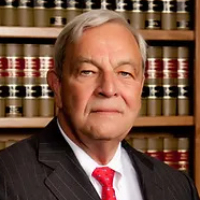Oil Trough Criminal Lawyer, Arkansas
Not enough matches for Oil Trough Criminal lawyer.
Below are all Oil Trough lawyers.
Timothy F. Watson
✓ VERIFIEDAccident & Injury
Tim Watson, Sr. is a graduate of the University of Arkansas School of Law and has been practicing law in Northeast Arkansas for the past 45 years. Ov... (more)
H. David Blair
✓ VERIFIEDAccident & Injury
H. David Blair is a practicing attorney in Arkansas specializing in accident and injury cases. David Blair completed legal studies at University of A... (more)
Todd Cooper Watson
Divorce, Divorce & Family Law, Criminal, Accident & Injury
Status: In Good Standing
Edward Wayne Boyce
Real Estate, Defect and Lemon Law, Child Custody, Divorce & Family Law, Criminal
Status: In Good Standing
John C. Gregg
Lawsuit & Dispute, Industry Specialties, Business, Bankruptcy & Debt
Status: In Good Standing



